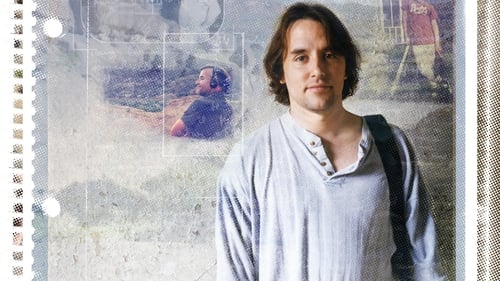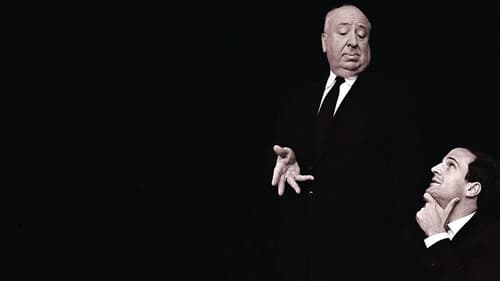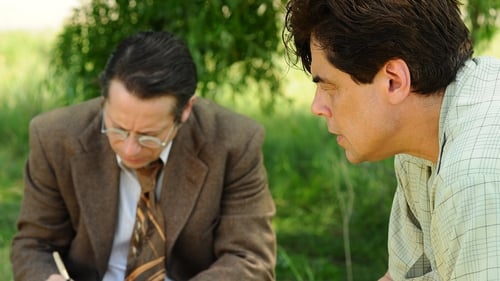Kent Jones
Nascimento : 1964-06-12, Missouri, USA

Writer
Diane é uma viúva na casa dos setenta anos cuja vida é ditada pelo o que os outros necessitam. Ela passa seus dias levando comida para moradores de rua, visitando amigos no fim de suas vidas e tentando desesperadamente se conectar com seu filho viciado em drogas. Conforme vai perdendo essas peças de sua existência, ela se vê obrigada a olhar para si e confrontar sua própria identidade.

Director
Diane é uma viúva na casa dos setenta anos cuja vida é ditada pelo o que os outros necessitam. Ela passa seus dias levando comida para moradores de rua, visitando amigos no fim de suas vidas e tentando desesperadamente se conectar com seu filho viciado em drogas. Conforme vai perdendo essas peças de sua existência, ela se vê obrigada a olhar para si e confrontar sua própria identidade.

Self
Critics Kent Jones, B. Ruby Rich, Joe McElhaney and Miriam Bale discuss the unique qualities of "Johnny Guitar," its lasting appeal and the influence the film had on some prominent directors during the years.

Self
Critics Kent Jones, B. Ruby Rich, Joe McElhaney and Miriam Bale take a closer look at the feminist overtones in "Johnny Guitar."

Self
Highlighting one of the most innovative American directors, this film reveals the path traveled by the auteur from his small-town Texas roots to his warm reception on the awards circuit. Long before he directed Boyhood, Richard Linklater’s intense desire to create fueled his work outside the Hollywood system. Rather than leave Texas, he chose to collaborate with like-minded artists crafting modest, low-budget films in a DIY style. His ability to showcase realistic characters and tell honest stories was evident from his films, and others soon took notice of his raw talent.

Writer
O documentário capta parte da famosa entrevista de Alfred Hitchcock e François Truffaut, em 1962, com contribuições de diversos cineastas, entre eles David Fincher, Martin Scorsese e Wes Anderson.

Director
O documentário capta parte da famosa entrevista de Alfred Hitchcock e François Truffaut, em 1962, com contribuições de diversos cineastas, entre eles David Fincher, Martin Scorsese e Wes Anderson.

Self
The image of a mysterious, solitary filmmaker - a cineaste maudit - who flees from both the media and the public, is unrelentingly bound to the figure of Leos Carax, in France. Elsewhere, the real focus is on his films and he is considered to be an icon of world cinema. Mr.X dives into the poetic and visionary world of an artist who was already a cult figure from his very first film. Punctuated by interviews and unseen footage, this documentary is most of all a fine-tuned exploration of the poetic and visionary world of Leos Carax, alias "Mr.X".

Screenplay
Após a Segunda Guerra Mundial, o combatente indígena Jimmy Blackfoot é internado em um hospital militar no Kansas, com queixas de perda de audição, vertigem e cegueira temporária. Os médicos não descobrem nenhuma causa fisiológica para os seus distúrbios, e passam a acreditar na tese da esquizofrenia. Mesmo assim, um etnólogo e psicanalista especializado em culturas ameríndias, Georges Devereux, é chamado para conversar com Jimmy e confirmar o diagnóstico. Através das conversas que evocam lembranças e traumas no paciente, nasce uma grande amizade entre esses dois homens.

Writer
A 25-minute visual essay by Kent Jones about Jean-Luc Godard and his film 'Weekend'.

Narrator
A 25-minute visual essay by Kent Jones about Jean-Luc Godard and his film 'Weekend'.

Director
A 25-minute visual essay by Kent Jones about Jean-Luc Godard and his film 'Weekend'.

Director
Director Martin Scorsese speaks candidly and passionately about one of his formative filmmaking influences: the late Elia Kazan. Utilizing precisely chosen clips from Kazan's signature films including "On the Waterfront," "A Streetcar Named Desire," "Gentleman's Agreement," "Baby Doll," "A Tree Grows in Brooklyn," "A Face in the Crowd," "America, America," and "The Last Tycoon," and interview footage of the director himself, co-directors Scorsese and Kent Jones recount the director's tumultuous journey from the Group Theatre to the Hollywood A-list to the thicket of the blacklist. But most of all, they make a powerful case for Kazan as a profoundly personal artist working in a famously impersonal industry.

Writer
Martin Scorsese narrates this tribute to Val Lewton, the producer of a series of memorable low-budget horror films for RKO Studios. Raised by his mother and his aunt, his films often included strong female characters who find themselves in difficult situations and who have to grow up quickly. He is best remembered for the horror films he made at RKO starting in 1940. Starting with only a title - his first was The Cat People - he would meticulously oversee every aspect of the film's completion. Although categorized as horror films, his films never showed a monster, leaving it all to the viewers imagination, assisted by music, mood and lighting.

Director
Martin Scorsese narrates this tribute to Val Lewton, the producer of a series of memorable low-budget horror films for RKO Studios. Raised by his mother and his aunt, his films often included strong female characters who find themselves in difficult situations and who have to grow up quickly. He is best remembered for the horror films he made at RKO starting in 1940. Starting with only a title - his first was The Cat People - he would meticulously oversee every aspect of the film's completion. Although categorized as horror films, his films never showed a monster, leaving it all to the viewers imagination, assisted by music, mood and lighting.

Director
Film-maker Martin Scorsese looks back over the impact of The Statue of Liberty on the twentieth century, her evolution and what she meant to people of the past and what she continues to mean after September eleventh, 2001.

Screenplay
World-renowned director Martin Scorsese narrates this journey through his favorites in Italian cinema.












